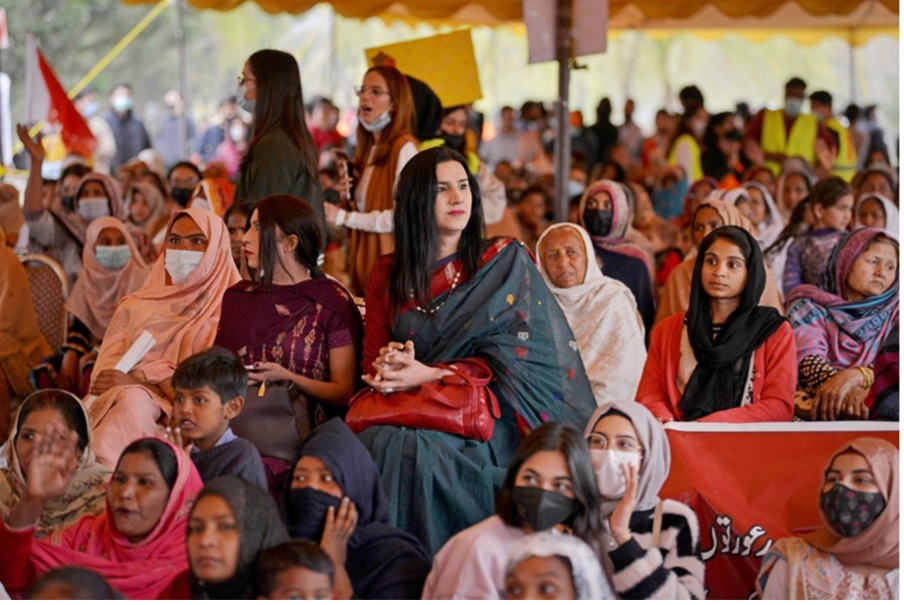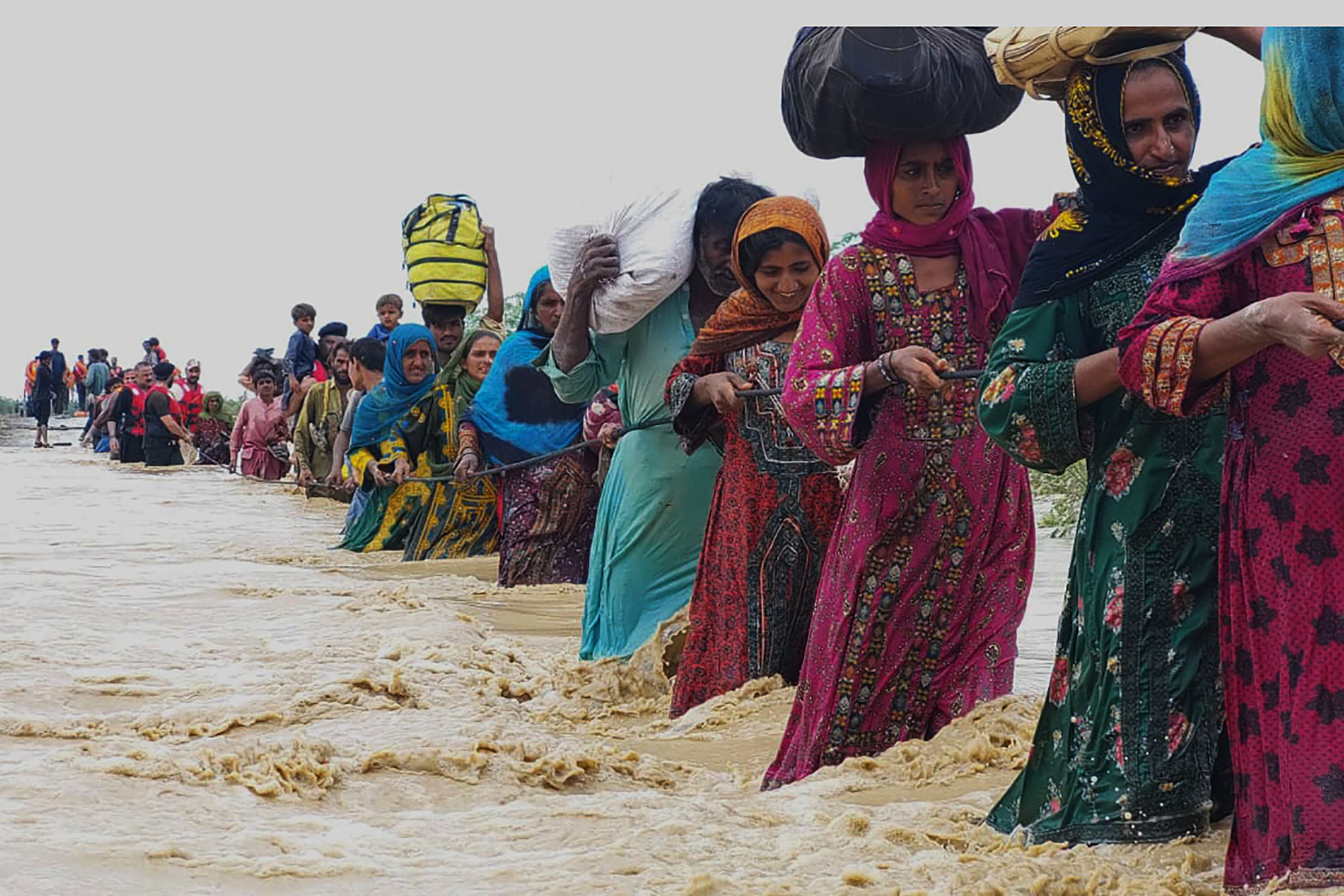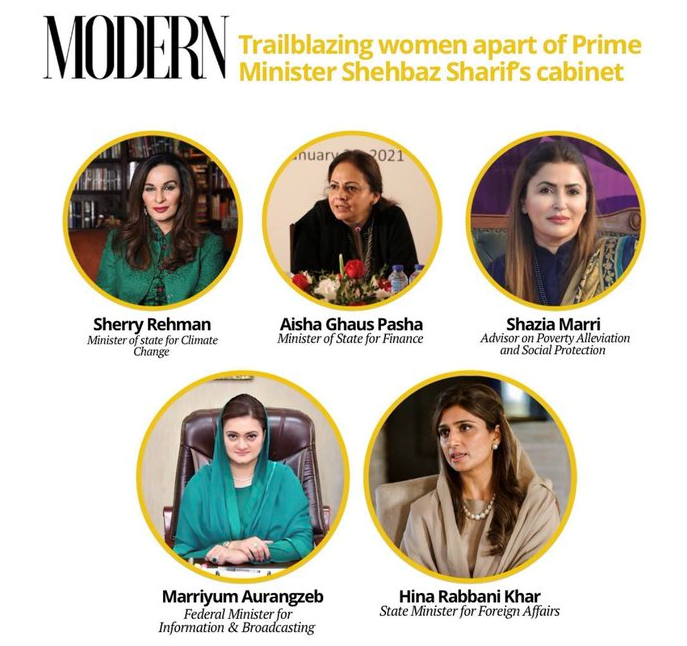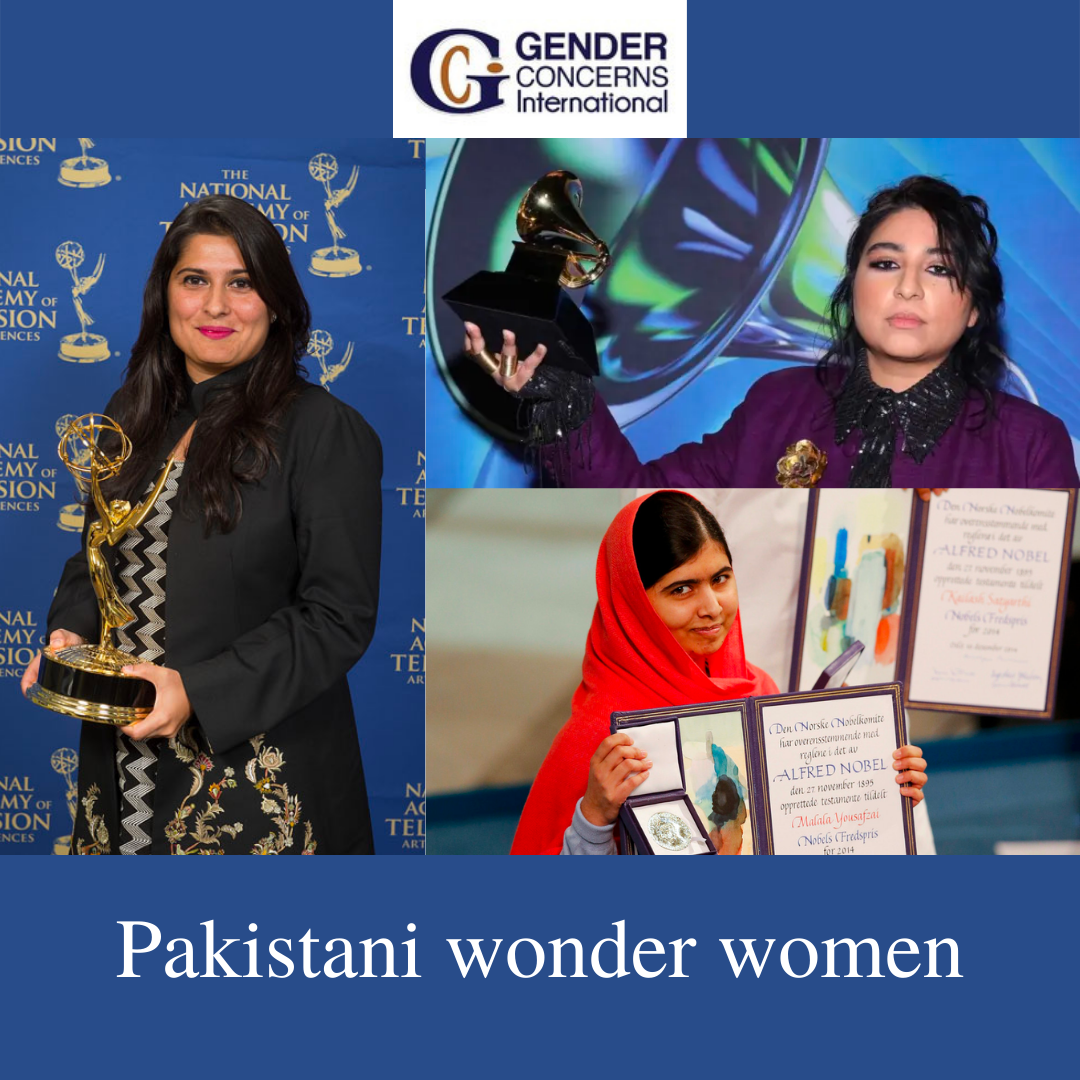Latest updates
Pakistan: Progress and Challenges in Global Gender Parity

Pakistan Improves Rank in WEF’s Global Gender Gap Report
Pakistan has been ranked 142nd out of 146 countries in the World Economic Forum's Global Gender Gap Report 2023, indicating a 57.5% gender parity, which is the highest since 2006. The report assesses gender equality across four dimensions: economic participation and opportunity, educational attainment, health and survival, and political empowerment. Pakistan is positioned near the bottom of both regional and global rankings, with only Iran, Algeria, Chad, and Afghanistan ranking lower. However, Pakistan has shown improvement in the "economic participation and opportunities" category, with a 5.1 percentage point increase over the past decade, reaching 36.2% parity.
Despite this progress, Pakistan's level of gender parity in this area remains one of the lowest globally, as highlighted in the report. Pakistan ranked 143rd in the sub-indicator of economic participation and opportunities.With a ranking of 132nd in health and survival, the sex ratio at birth (male births per female births) is first while healthy life expectancy is at 140.
Pakistan has made significant strides in economic participation and opportunity, with notable progress across all indicators in this sub-index. Specifically, there has been improvement in the representation of women in technical roles and achieving wage equality for similar work, indicating a positive trend. Despite existing disparities, there has been gradual advancement in achieving gender parity in literacy rates as well as enrolment in secondary and tertiary education. As a result, Pakistan has achieved 82.5% parity in the educational attainment sub-index.
Climate Justice for Women in Flooding Pakistan

Since June 2022 Pakistan has seen heavy flooding and rains, effecting almost 33 million people, of which 20.6 million require urgent humanitarian assistance due to lack of food, shelter, and health services. Women and other vulnerable groups, as usual, bear the brunt of these challenging situations.
Women are already disadvantaged, with restrictions in mobility, safety risks, navigation, economic independence, and literacy. Disasters like this only exacerbate such disadvantages. These are challenging conditions to survive in, not to mention keeping families safe at the same time or carrying a pregnancy to term. Further the lack of shelter, protection and privacy is increasingly posing the higher risk of sexual assault, GBV, kidnapping and rape. With an already existing dilemma on how to deliver babies safely and keep women as healthy as possible during pregnancy throughout this crisis, there is also an increase in unwanted pregnancies due to the difficult circumstances. Climate change has a drastic impact on rural communities with devastating consequences for the women. Climate justice considerations must be centered on affected women. It is hoped that UN and international community will offer required support to people in Pakistan demanding climate justice.
Pakistan Democracy

Pakistan new PM Sharif has announced his cabinet by including five women out of 34 ministers at the key positions. As the previous government was dominated by men the induction of five women ministers proves that there is no such ‘taboo’ in Shahbaz’s government. Hina Rabbani Khar of the Pakistan People’s Party has been appointed Minister of State for Foreign Affairs in the new administration. Sherry Rahman has become the Minister for Environmental Change. She had earlier served as Pakistan’s ambassador to the United States. Pakistan Muslim League-N leader Maryam Aurangzeb has been appointed Information Minister. Besides, Shazia Marie and Ayesha Ghaus Pasha have been given the charge of ‘Bent Program’ and Minister of State for Finance respectively.
It is hoped that the track record of experience and expertise of these newly appointed ministers will help set the new standards of efficiency and administration at their ministers.
Grammy Award: Celebrating Pakistani Women History

Arooj Aftab became the first Pakistani woman ever to receive a Grammy Award announced earlier this week.
She won the Best Global Music Performance for her song Mohabbat. Arooj Aftab thereby joins other two well-known wonder women of Pakistan for their outstanding achievements, Sharmeen Obaid-Chinoy and Malala Yousafzai
Sharmeen Obaid-Chinoyis a journalist, filmmaker and activist known for her documentaries highlighting gender inequality. She became the first Pakistani woman to win an Oscar for her 2012 documentary Saving Face.
Malala Yousafzai is the first Pakistani woman and the world’s youngest Nobel Peace Prize Winner in 2014. She received this great honor for her engagement in human rights advocacy, and specifically the education of women and children, after herself having been unable to attend school in her native Swat Valley in Khyber Pakhtunkhwa, northwest Pakistan where the Taliban had banned girls from attending school.
Pakistan 2018- Towards More Inclusive Elections?
Elections in Pakistan in July 2018 carry the potential for remarkable changes for gender-inclusive and democratic developments of the country’s political and electoral system. As reported by local and international media, polls already display unexpected and novel features with regards to women’s expected electoral and political participation.
According to local newspapers and the Election Commission, the overall number of citizens who are able and willing to cast their vote in July has shown an upward trend by almost 23%, if compared to 2013. According to Geo.tv, this increase is directly related to the sharply increasing number of women and minorities who have registered as voters.
Simultaneously, ECP’s most recent data also reveals an overall increase in the number of women who have filed their nomination papers to run for a seat in one of the country’s assemblies. With more than 1,691 female candidates ready to contest in the elections as compared to 1,171 in the last round of voting, Pakistan seems to be taking an historical step towards a more gender-inclusive political and electoral system.
As an international organization that conducted Gender Election Observation Missions (GEOMs 2008 and 2013, Gender Concerns International will continue to advocate for women’s inclusion in electoral and political procedures, and will follow future developments in Pakistani elections with keen interest.
25th July, PAKISTAN GOES TO THE POLLS-
The Call for Democratic Commitment and Women’s Electoral Participation
In May 2013, the National Assembly elections in Pakistan marked the country’s clear transition and commitment to a democratic and inclusive political regime. Four years later, on 25 July 2018, Pakistani citizens will be called to renew such commitment through a new set of General Elections in a context of growing political uncertainty due to severe tensions between the ruling PML-N Party and the country’s military groups. On 31 of May, the former government and Parliament were dissolved and an interim administration aimed at supervising the electoral procedures initiated its works. Together with the provisional government, a number of judicial and international organizations will be monitoring the outcome of the elections, including the European Union Election Observation Mission.
Indeed, even though elections in 2013 have marked an historical moment in the country’s history, the path to a fully-operative and inclusive democratic system is still a long one. As observed by Gender Concerns International during the 2013 Gender Elections Observation Mission ( GEOM), many women all over the country were still denied the constitutional right to vote. Moreover, even after the elections in 2013, the rates of female presence in the newly elected democratic institutions were insufficient. In this sense, the upcoming General Elections in July 2018 represent a potential catalyst for definite change in women’s democratic participation in Pakistan.
Attempts have been made to promote a more inclusive system, such as the 2017 Elections Act, focused on the new role of women and minorities within the democratic framework. Specifically, the Elections Act provides that each political party running for the next elections will destine at least 5% of its seats in the National Assembly to female candidates and that the Election Commission of Pakistan ( ECP) will nullify electoral results in polling stations where women’s turnout is less than 10% or where, as occurred in 2013, their right to vote and participate is denied or hampered. Such measures, if fully implemented and monitored, will play a fundamental role in strengthening the country’s long-term and sustainable democratic commitment, starting from the next 2018 elections.
International and national observers for the 2018 General Elections will include, together with the EU Mission ( EU EOM), the Free and Fair Election Network ( FAFEN) and the National Democratic Institute (NDI). The ECP has also appointed a list of national and local monitoring agents and teams that will be employed in the electoral procedures in each of the country’s constituencies.
Gender Concerns International will be observing the development and outcome of the elections based on the findings of international and regional observers in Pakistan and will continue to advocate for stronger and more inclusive democratic institutions as well as the fair implementation and improvement of existing democratic rights and laws.